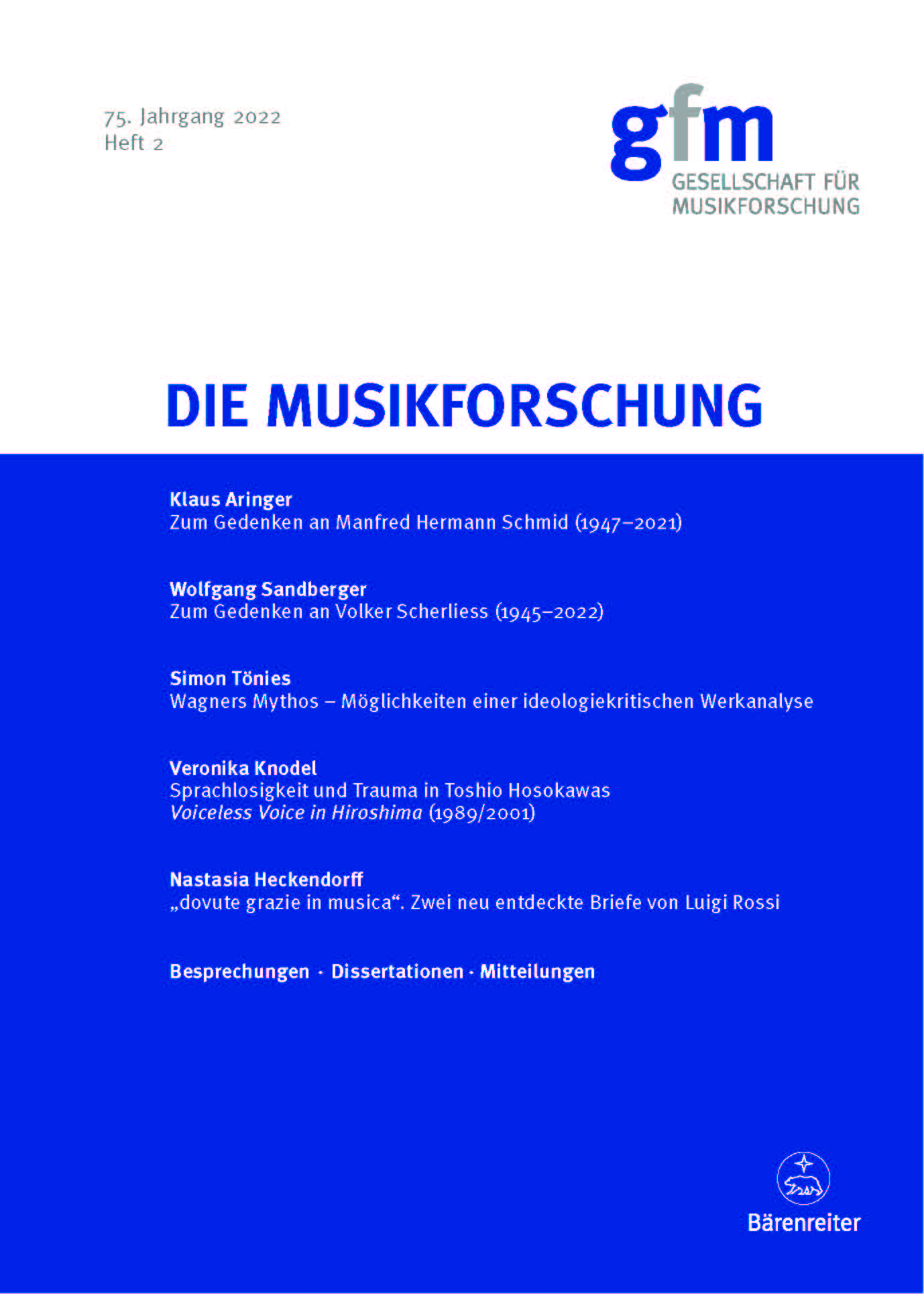Wagners Mythos
Möglichkeiten einer ideologiekritischen Werkanalyse
DOI:
https://doi.org/10.52412/mf.2022.H2.3041Abstract
This study revisits the debate about antisemitic subtexts in Richard Wagner’s music dramas and offers an outline of an ideology-critical analysis of his works. The proposed methodology avoids speculations about the author’s intentions and instead – in accordance with post-structural semiotics – reconstructs ideology as an intersubjective and context-driven sign system, modelled on Roland Barthes’s theory of myth. This approach is demonstrated with two examples taken from Siegfried and Die Meistersinger von Nürnberg. In a first step, I apply intertextual analysis in order to identify antisemitic codes that potentially overlap with the primary text of the operas. In a second step, the specific manner in which those codes are embedded in the multimedia semiosis of the music drama is examined with a particular emphasis on the role of the music. I argue that Wagner’s music tends to modify these codes by presenting them as natural and immediate, thus serving as a vehicle of ideology. Finally, in light of these considerations, I suggest an alternative approach to performing Wagner’s operas today.






